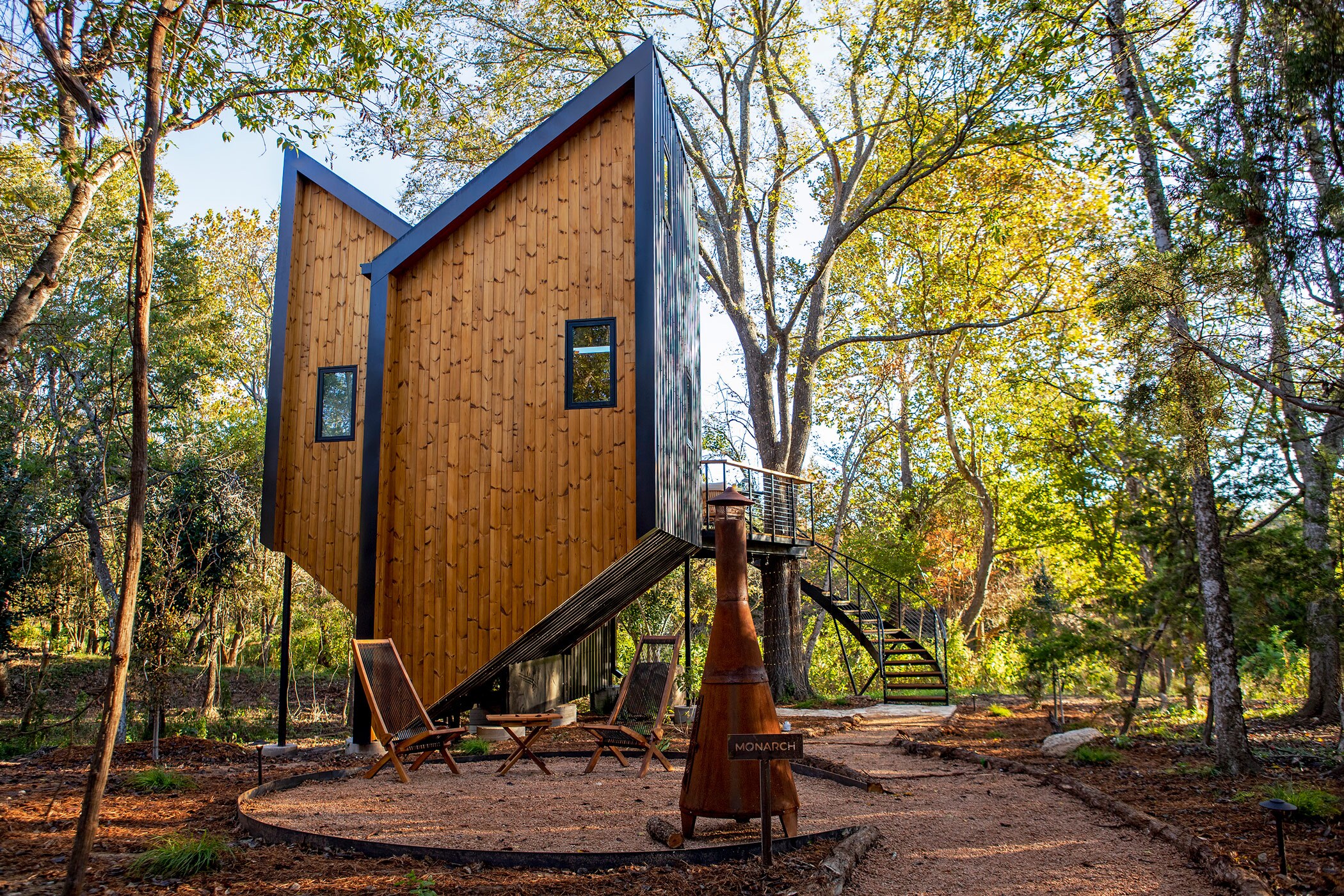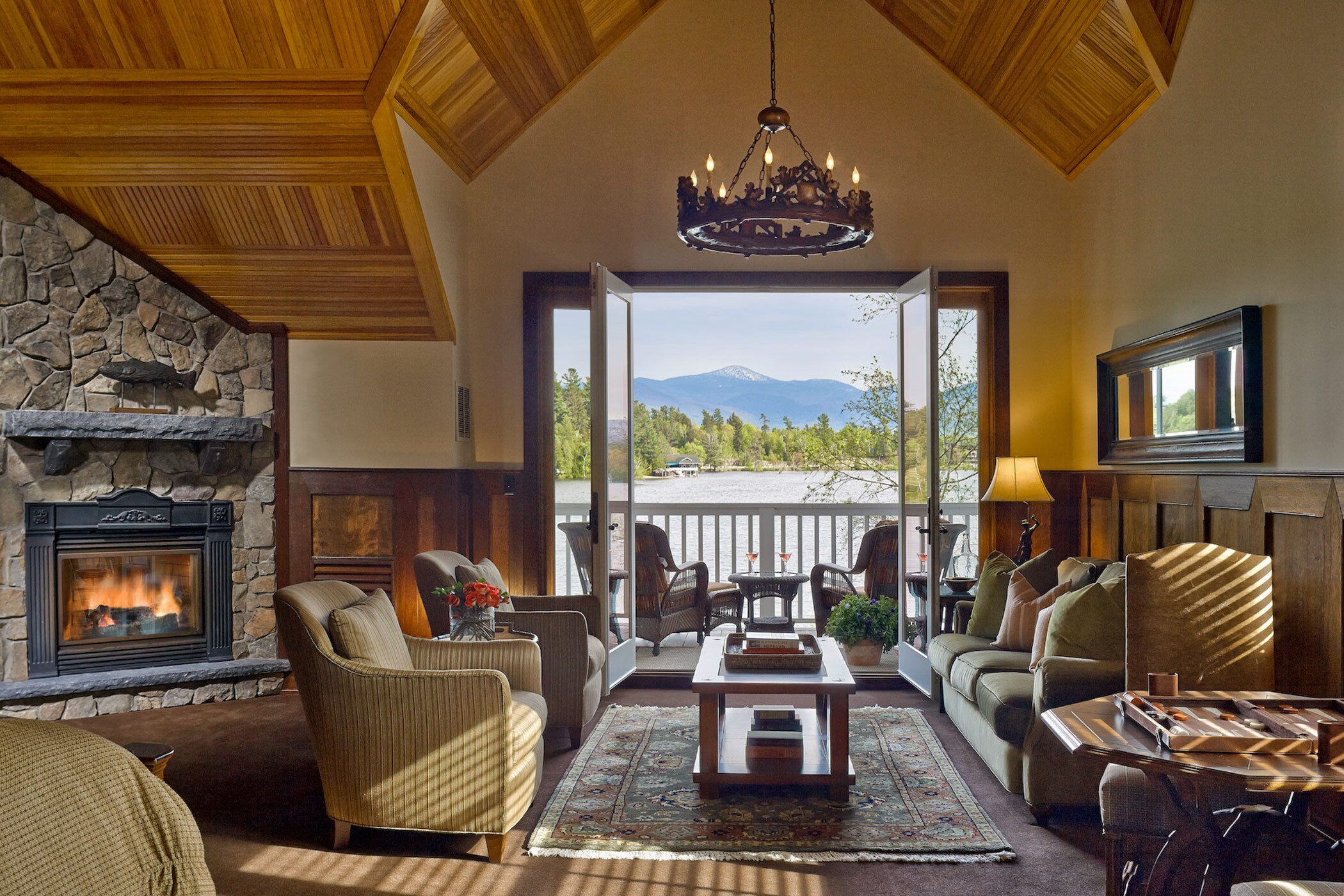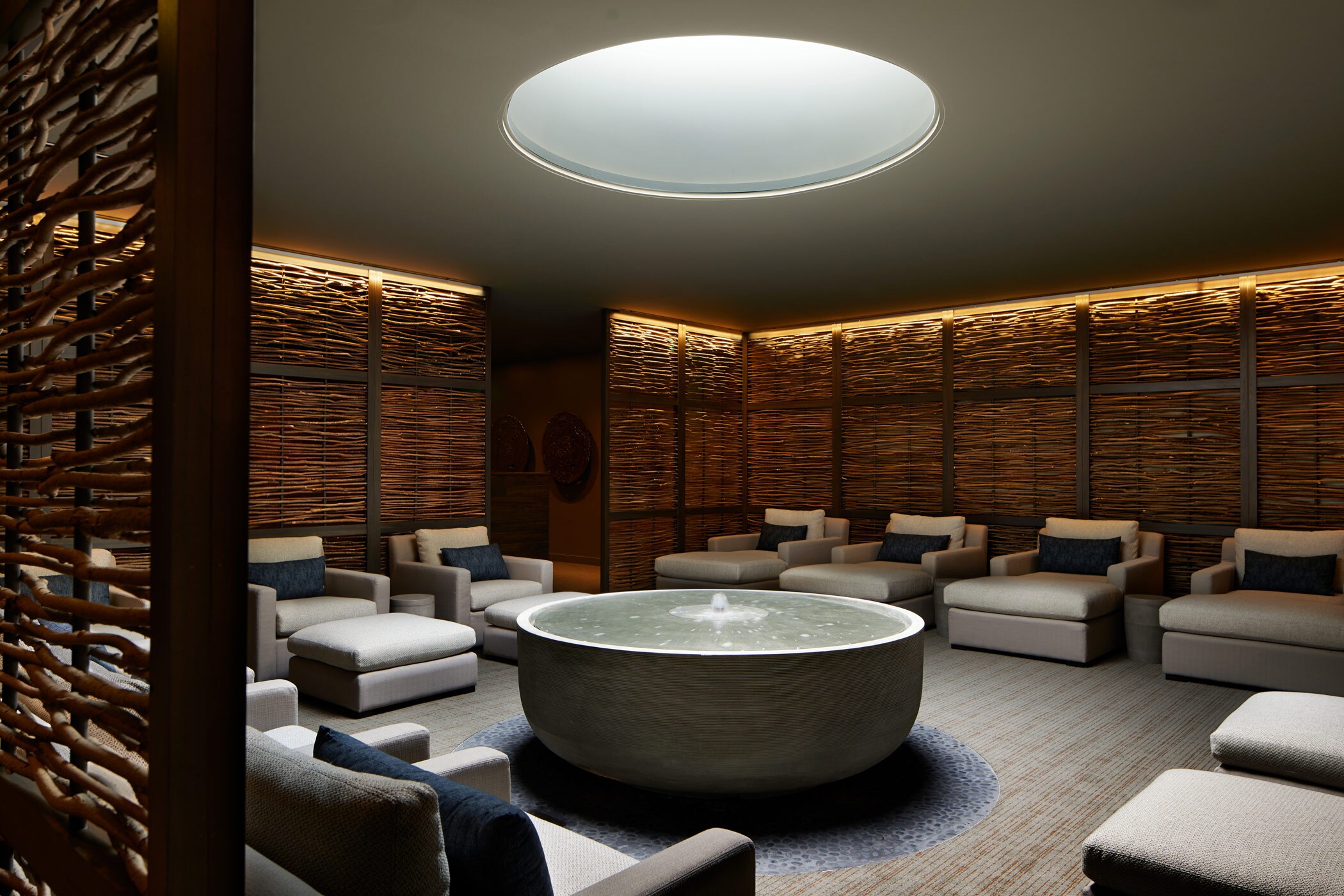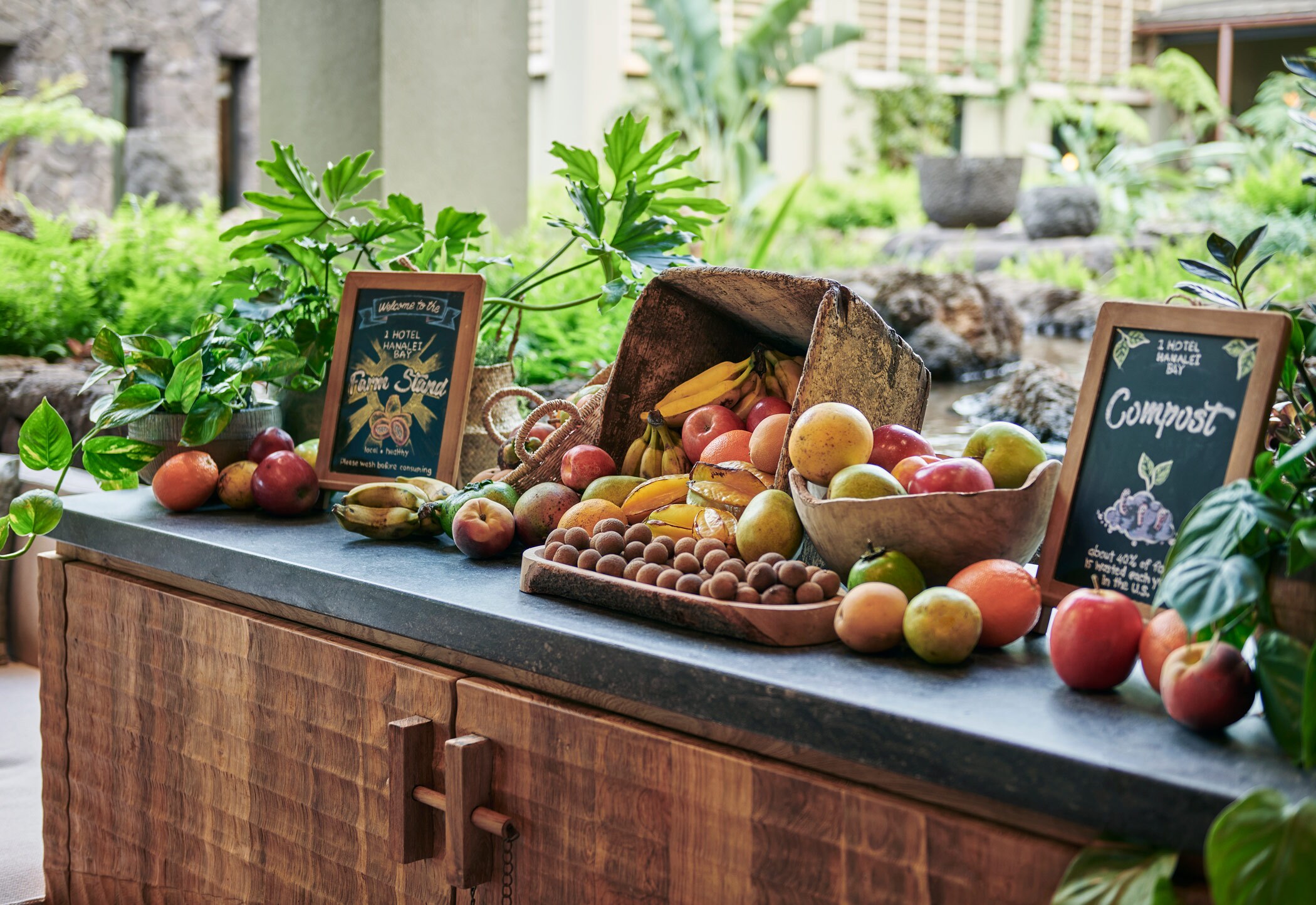Alt luxury. Progressive luxury, Sustainable luxury. Barefoot luxury. Treehouse luxury?
While no one seems to have come up with a substitute for the word luxury, unique descriptors are now commonplace as operators seek to differentiate themselves within the crowded upper end of the market.
Recent research from Morning Consult says that cost isn’t everything when it comes to luxury. While luxury experiences tend to be expensive, according to the research, cost isn’t the first thing on consumers’ minds when asked what defines luxury. In fact, for travel, high cost ranked last as a consideration.
“I think the term ‘luxury’ is often overused in the hospitality industry,” said Kenan Simmons, senior vice president for the Americas at Small Luxury Hotels of the World.
Everyone defines luxury differently; what it means for one person could be completely different for the next, Simmons said. The true pinnacle of luxury lies in personalization.
“By understanding each guest's unique desires, we can curate experiences that resonate deeply, aligning them with their ideal offerings," Simmons said. "That’s real luxury. “
The personalization theme was a constant in comments from hotel operators.
“Luxury is what each person’s thinks it is to them," said Daniel Hostettler, CEO of Florida resort The Boca Raton. "You have to ask the guest pre-arrival: 'Why are you coming and what do you want out of your stay?'”
Similarly, Kristi Gole, executive vice president-strategy for the Global Hotel Alliance, said “it’s up to the customer and what they care about.”
Sylvia Wong, vice president of real estate investment firm WTI, Inc. and owner of Ariva and the Ariva Serviced Residences in Las Vegas, said the definition of luxury hospitality is “absolutely” evolving.
“I think it is an acknowledgment of the fact that guests are diverse and have different preferences and needs,” she said.

Toni Stoeckl, chief marketing officer for SH Hotels & Resorts, believes the shift is “about moving beyond the one-size-fits-all approach and delivering hyper-personalized experiences that resonate with each guest."
"Consumers now have more choices than ever, and as a result, the luxury landscape has become somewhat commoditized,” he said.
Ben Wolff, co-founder of Onera, which offers “treehouse-style” units at two Texas properties with more in the pipeline, said that “without a doubt, experience, adventure and wellness are the new status symbols.”
He said the modern traveler “prefers novelty and tech-forward efficiency over brand familiarity/conformity and high staff-to-guest ratios. “
Overly deferential, butler-like hospitality is becoming a relic of the past, Wolff said. Travelers today prefer warmer interactions with the hospitality staff they encounter. The modern traveler wants to feel like their hospitality experience is “collaborative not transactional."
"They want to connect with the property origin story, the founders and the hospitality team,” he said.
As for barefoot luxury, Gole said that a good example of that category is Castaway Island Resort, a Fijian Island near where the Tom Hanks movie Castaway was filmed. The property positions itself as “Fiji’s original private barefoot island resort.”
Luxury by any other name
While the word luxury may be unavoidable, providers of high-end hospitality do seek to set themselves apart through language. Terms such as ultra-luxury, "alt" luxury and progressive luxury are becoming more prevalent, said Chintan Dadhich, general manager of Conrad New York Downtown.
While "luxury" still holds value in retail and tangible products, Dadhich said there is a growing preference for terms such as “personalized," “rare” and “authenticity,” which reflect a more tailored and genuine experience, aligning better with current consumer expectations.
Small Luxury Hotels of the World likes to use the word “bespoke” to reflect its emphasis on customized stays, Simmons said. One of the brand's core values is: "Make it personal."
“Hotels enable bespoke experiences that place travelers at the heart of an environment," he said. "Every interaction is personal and authentic, forging intimate connections with a place and its people.”

Consumers are no longer just looking for opulence, Stoeckl said. They want experiences that resonate with them on a personal level.
“We embrace the idea that our brands aren’t ‘something for everyone,’ but instead, ‘everything to that someone’ who deeply connects with our vision, our purpose and the experience we bring to life," he said. "It’s this personal connection and sense of purpose that has created a true cult following for our 1 Hotels brand.”
Terms like “personalization” and “authenticity” may not necessarily be synonymous with luxury in a traditional sense, but Dina Niekamp, associate vice president of sales, marketing and brand at Hyatt Hotels Corp.'s Miraval Resorts & Spas, said “they surely enhance the experience.”
“Elements of personalization and authenticity are woven into each guest experience to create an environment where people feel connected to themselves and those around them and feel safe opening up to new experiences and perspectives,” she said.
Miraval properties are also all-inclusive, adding a layer of luxury in terms of “not having to worry about making reservations or planning once on property,” Niekamp said.
Hostettler describes traditional luxury brands such as Ritz-Carlton and Four Seasons as “chain luxury” that may offer a more predictable experience than that found at independent properties like The Boca Raton which, he said, “provide a true sense of place.”
At Onera, said Wolff, marketers tend to avoid the word luxury and use phrases such as “landscape hotel,” “experiential resort” and “unique stay.”
Wellness and well-being
Aside from the more abstract terms such as authentic and personalization, luxury hospitality brands share an emphasis on well-being or wellness.

At Miraval, luxury is exemplified through regularly rotating “transformative” well-being workshops, classes and other activities that support the connection between mind, body and spirit, Niekamp said. That includes treatments at Life in Balance Spas; culinary, cultivation and nutrition activities; yoga, meditation and breathwork; equine activities; and private well-being counseling.
Realizing that much of its clientele is wellness-focused, Wong said Ariva offers a variety of spaces and services that best meet their needs to maintain their routines while on the road. These include a peaceful zen garden, a “luxe” yoga and cycling studio and an expansive fitness center offering individual and group classes.
Stoeckl said wellness is a priority for luxury hotel guests. Whether guests are traveling for work or play, “we believe well-being should always be front and center.”
But well-being does not always mean spas and yoga. At Ariva, it boils down to having the comforts of home, Wong said.
“As wonderful as luxurious hotel stays were in my own business trips to Las Vegas, I missed the simple joy of making a simple [and healthy] breakfast for myself, having more space, and the feeling of staying at home,” she said.
All units at Ariva have high-end kitchens.
Wellness also needs to extend to the various aspects of a hotel property.
Wolff said even meeting facilities should be “inspirational, nature-oriented and retreat-like facilities, unlike big-box convention hotels.”
Heightening experiences
While the word “experience” has been core to hospitality marketing for years, luxury brands now aim to bring it to new levels.
“Luxury to one guest might be a quiet dinner on a secluded beach with sand between their toes,” Dadhich said. “Another guest may prefer to be in a beautiful dining room surrounded by people all dressed to the nines.”
It’s all subjective, he said, “but as long as you understand your guests' unique desires and can cater to them, you’re providing a luxury experience.”
As an example of modern luxury, Simmons said he was recently at Calala Island in Nicaragua where he was able to fish with the local staff. Following the expedition, guests brought their catch back to the property where a Michelin-star chef created a meal from the fish.
“It’s not traditional luxury, and it’s not everyone’s taste of luxury, but it was an experience that will stay with me for a very long time,” he said.
Sustainably luxurious
In what's often termed as progressive luxury, sustainability is a key component. It is a core pillar of what is considered luxury at SH Hotels & Resorts' 1 Hotels brand, Stoeckl said.
“And it aligns perfectly with the concept of progressive luxury,” he said.

Today’s guests are seeking more than just a lavish experience. Stoeckl said they’re looking for purpose and values that resonate with their own.
“Sustainability isn’t just an add-on," Stoeckl said. "It’s woven into everything we do, from the materials we use in construction to the operations of our hotels and the guest experiences we offer.”
For instance, 1 Hotels provides timers in showers as “a gentle reminder” that keeping showers to five minutes to help conserve water. Room keys are made from five different types of wood, and each property participates in a "1 Less Thing" initiative, where guests can leave behind unwanted clothing to be donated to local charities. Lobby farm-stands offers fresh, locally sourced fruit to promote a connection with local farmers.
Technology meets luxury
While technology might be considered the antithesis of luxury, high-end operators see it is a potential enabler. Technology is increasingly integrated into luxury experiences to enhance personalization and efficiency, Dadhich said. High-tech features allow staff to provide more tailored services, from personalized room settings accessible via apps to AI-driven personal assistants.
Technology enables the offering of “little things that make a difference,” Hostettler said. For instance, The Boca Raton’s room-service carts carry micro-chips so staff know they have been pushed into hallways and can be collected.
“Creating magically personalized experiences starts with understanding what our guests love most,” Stoeckl said. “We use data not to replace, but to enhance the high-touch experience, allowing us to deliver services and amenities that reflect our guests’ individual preferences. Technology helps us gain insights into our guests’ lifestyle and interests, enabling us to curate stays that feel uniquely tailored to each person.”
He said when guests join 1 Hotels' loyalty program Mission, it makes it easier to track their deliver what they want without having to ask.
“We’ll keep track of your preferences — your likes, dislikes, sleep patterns, wellness rituals, and more — so we can make sure your retreat is perfectly tailored to you and help you feel right at home,” he said.
Generational gaps
While younger travelers have historically been thought to prefer informal trappings, operators see it as a mindset for older guests as well. There is a noticeable trend where younger generations opt for more casual, authentic luxury experiences, Dadhich said. This reflects broader lifestyle choices that favor flexibility and sustainability. However, it's also a psychographic shift, where people across all ages are valuing experiences and personal relevance more highly, especially after the pandemic.
“It’s definitely a mindset, but overall, I feel that we're moving to a more casual and approachable definition of luxury,” Simmons said. “The days of stiff and stuffy hotel service are over. Guests aren’t looking for accommodation that boasts about the thread count of their sheets or their marble baths, because in all reality, clients who travel to ‘luxury hotels’ already have them at home, or better.”

Wolff agreed.
“I think the younger generation expects a different style of luxury than generations past,” Wolff said.
He added baby boomers are also embracing more casual luxury and opting for novel experiences over familiarity or conformity.
As spending on luxury increases rapidly among millennials and Gen Z, Dadhich said there is a segmentation within the market where these younger demographics seek distinct experiences. For example, younger travelers might prefer an uncharted island or deep forest exploration rather than lounging in a poolside cabana.
Luxury today isn’t defined by age as guests seek engaging experiences that make them feel connected and inspired, Stoeckl said.
“No one wants to feel old or out of touch,” he said. “Consumers across the board are looking to be part of a cool, vibrant experience.”
